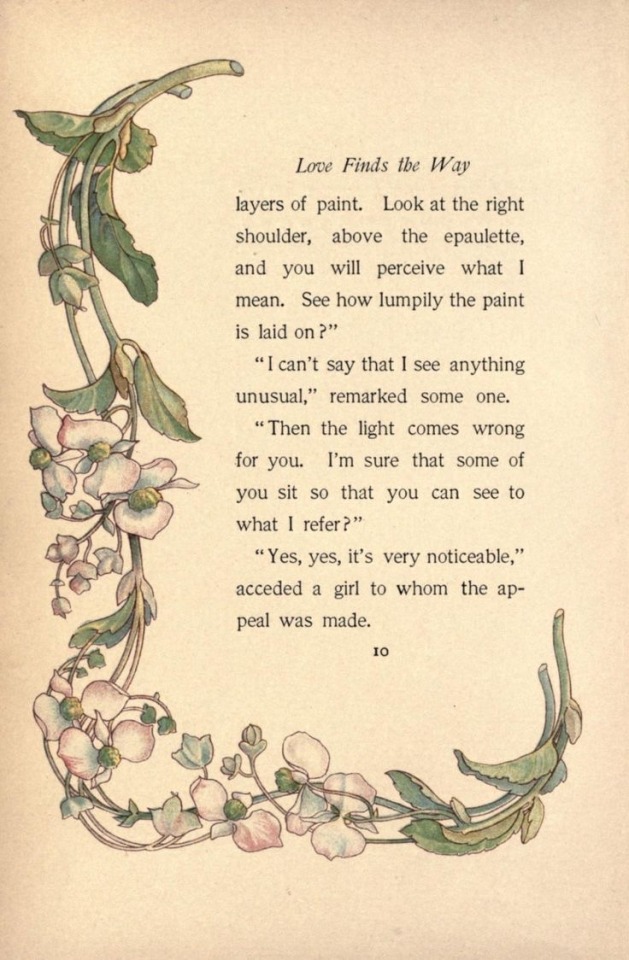Text
Any storyteller at all: Do you want to hear a story about a guy who was never meant to be king, but ended up having to take the throne? And it was hard.
Me: Oooooooh?
The storyteller: And not just hard in itself - there was sinister plotting beneath the surface, and interpersonal stuff was complicated too.
Me: Oooooooooh!
109 notes
·
View notes
Text
#keyboard because you can use all ten fingers instead of just thumbs!#plus the keys are big so you don't make a minimum five typos per sentence
4K notes
·
View notes
Text

#the nobel peace prize exists because nobel felt guilty for inventing tnt#jerome lejeune discovered the cause of down's syndrome and helped invent the prenatal test for it#because he loved these children and wanted to help parents prepare to care for them#and then when getting the top honor in genetics for it he called out the international scientific community#for how evil they were for using his test to kill children#(and thus lost his nobel)#and later served as the first head of the vatican's pontifical academy for life
16K notes
·
View notes
Note
What do you think Sauron’s opinion of Elrond was?
There’s a line in Two Towers (I think) I was going to look up to answer this, except I got lazy, where Gollum says Sauron hates something and Frodo responds like “What doesn’t he hate?”
So I’m going to go out on a limb and say Sauron hates Elrond.
But to actually contribute something not obvious to the conversation, I think of all his biggest adversaries, he is most likely to underestimate Elrond.
Elrond’s influence is huge but we only see him give his advice to those who came to him voluntarily, he hides away but not so well he can’t be found in need. He’s a healer, not a warrior or a king, and he doesn’t have the ambition Galadriel has.
Heir of Luthien? Hate that. Uses his power to influence events mainly by being a well of knowledge and a safe place to weather storms? Sauron doesn’t understand that.
Elrond ultimately defeats Sauron by raising children with love, helping those in need, not seeking power and giving solid advice. He puts together the fellowship, but doesn’t even put his name on it, he helps everyone there see what has to be done by letting them suggest options and showing them how those ideas are infeasible, and making sure everyone has the whole story. He takes advice as well, he sends Pippin instead of Glorfindel at Gandalf’s suggestion. He gently refuses to let the fellowship swear an oath.
One of my favorite moments from the council of Elrond is when they’re like “Who will do this task” and Elrond goes quiet. It is NOT because he doesn’t know who would be best for it. But he knows Frodo has to choose on his own, he cannot force him, or what little hope they have will be gone. The MOMENT Frodo says he’ll do it, Elrond says he is the only person who can, but he doesn’t lay that on him until he is committed.
If everyone had rolled up to Rivendell and Elrond had just said “you nine go drop the ring in Mt doom” and sent the same exact people? The fellowship would have failed, because the understanding wouldn’t have been there. Elrond handled that council to perfection, and that is the kind of passive power based in understanding that is sooooo vital to the downfall of Sauron, but which Sauron does not value or comprehend.
The people that scare Sauron are people who want the ring. He is 100% confident that without the power of the ring, he cannot be beaten, and the fact that middle earth would fall to darkness even if Galadriel or Gandalf took it is pretty weak recompense for him if he is defeated.
Elrond never even entertains the idea that he would take the ring (at least in our view). Every bearer of an Elven Ring (and Aragorn) is offered it. Gandalf first when Frodo first learns what it is, and he tells us what he would do with it and why it would be a bad idea. Galadriel most famously, and she had literally dreaded the idea of the ring coming through Lothlorien because she knew she wanted it, and famously refusing it was a trial for her.
There is no moment when Elrond is DIRECTLY offered the Ring by Frodo. But the entire first half of the book the goal is “get the Ring to Rivendell” where Elrond will know what to do with it, and it will be safe. In the beginning the hobbits have no concept of going further than that- so basically the idea is “put the Ring in Elrond’s power” for the first half of the book.
And Frodo arrives half dead to Rivendell, completely alone and vulnerable, and Elrond heals him, and never is there even discussion of whether Elrond could have taken it from him then, or if he was tempted to. The only thing Elrond says on the topic of the Ring being given to him is that Rivendell cannot keep it safe from the Enemy.
Taking the Ring to Minas Tirith clearly the equivalent of giving the Ring to Denethor. Galadriel clearly fears that the Ring coming to Lothlorien will be her downfall because it will be in her power and she knows she wants it.
Elrond is never shown even considering taking it. The Ring staying in Rivendell would be bad according to him because they could not withstand Sauron’s full force bent towards extracting it. Even in this scenario where the Ring remains in Rivendell, Elrond discounts a possibility that he would be tempted to use it to keep Sauron out.
Sauron is physically incapable of thinking of someone like that as a threat, it is his biggest weakness, and that’s why the plan Elrond facilitates is the one that ultimately takes him out.
1K notes
·
View notes
Text
NaPoWriMo #22: A poem focusing on a single color
Dreams of Blue
O keep me in the deep blue night
Beneath a cobalt sky
Let the stars be sapphire
As they go whirling by
Wrap me in an azure cloak
Atop a cyan bed
With cushions of cerulean
Beneath my weary head.
Let daytime keep its rainbow fair
With every shade and hue.
Take all the world and let me rest
Within my dreams of blue
26 notes
·
View notes
Text
NaPoWriMo #21: A triolet
This poetry form with several repeating lines seemed perfect for a poem about time travel.
A Time Traveler's Romance
Although you first met me today
I know you very well.
We've loved in time's most tangled way
Although you first met me today.
When we've shared years of work and play,
my younger self this tale you'll tell
"Although you first met me today
I know you very well."
35 notes
·
View notes
Text
Captain Wentworth had no fortune. He had been lucky in his profession; but spending freely, what had come freely, had realized nothing. But he was confident that he should soon be rich: full of life and ardour, he knew that he should soon have a ship, and soon be on a station that would lead to everything he wanted. He had always been lucky; he knew he should be so still. Such confidence, powerful in its own warmth, and bewitching in the wit which often expressed it, must have been enough for Anne; but Lady Russell saw it very differently. His sanguine temper, and fearlessness of mind, operated very differently on her. She saw in it but an aggravation of the evil. It only added a dangerous character to himself. He was brilliant, he was headstrong. Lady Russell had little taste for wit, and of anything approaching to imprudence a horror. She deprecated the connexion in every light.
It's interesting to me, Persuasion is the last novel Austen wrote and she had this trend prior of "W" being a villain (Wickham and Willoughby) and this paragraph about Wentworth makes me think about her other dubious men. He's gambled or spent all his money away, just like the other two, he's confident he'll get more. Wentworth and Henry Tilney are the only heroes with wit, but only Wentworth has this magnetic charm that seems to draw every woman in the room. Very Wickham of him, recall how drawn every female was to him when he came into Meryton. Wentworth feels a lot like Austen's villains, especially at first.
It makes me feel that Lady Russell was right to be worried. This sort of magnetic person, with very pretty words but no substance to back it up. It could have been a Willoughby-esq whirlwind romance and left Anne with nothing.
#i made this exact post about this exact passage the second-to-last time i read this book#that paragraph was a punch to the throat#and i'm with lady russell on this one#it took anne's rejection to sober him enough to keep his money this go-around#persuasion#jane austen
245 notes
·
View notes
Text
#they're all great but i have a soft spot for a good historical episode#here's something that happened to our ancestors who just happened to look identical to us?#so we all get to dress up in period clothing?#*chef's kiss*
175 notes
·
View notes
Text
Also, this is an excellent opportunity to recommend a fantastic podcast. Hours upon hours of explanations of why Catholics believe what they believe.
Maybe the problem with Christian fiction is that it's non-denominational. People are just "Christian", with no effort put into showing what practicing that religion looks like for them specifically. No indication that there are other Christians who could have different beliefs. No wrestling with differing ideas and the struggle of how one should live out their Christian faith. And that makes it unrealistic and unrelatable.
366 notes
·
View notes
Text
Tell me you've never met a practicing, devout Christian without saying you've never met a practicing, devout Christian.
Maybe the problem with Christian fiction is that it's non-denominational. People are just "Christian", with no effort put into showing what practicing that religion looks like for them specifically. No indication that there are other Christians who could have different beliefs. No wrestling with differing ideas and the struggle of how one should live out their Christian faith. And that makes it unrealistic and unrelatable.
366 notes
·
View notes
Text
9 notes
·
View notes









